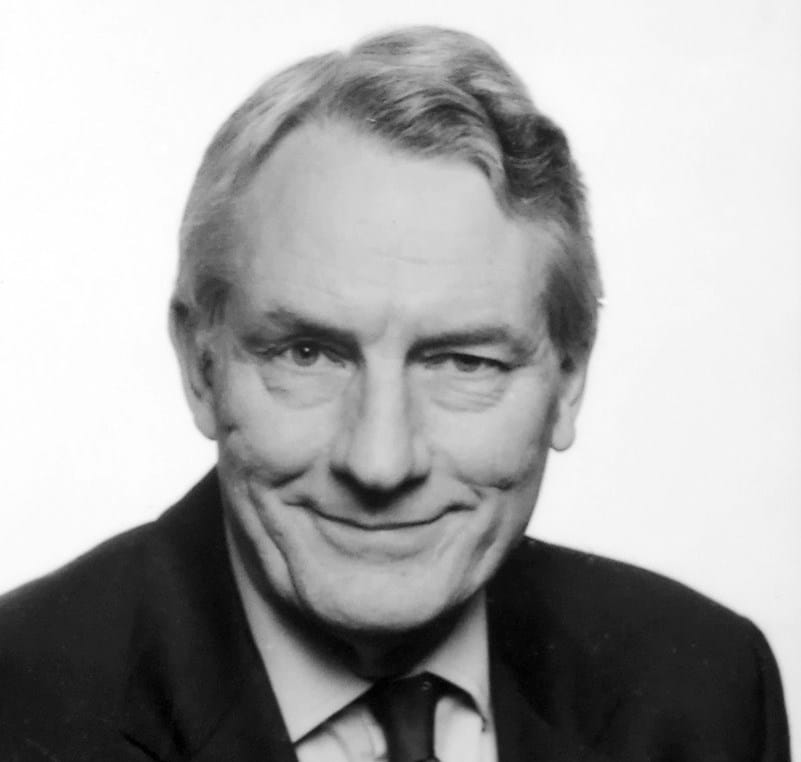Sir David Harrison, 1930-2023

SIR DAVID HARRISON, an educationalist who co-published leading literature on fluidisation, died on 27 March, aged 92.
David began his career in chemical engineering in 1956, when he joined the department of chemical engineering at the University of Cambridge at the invitation of TRC Fox, the department’s first head. With a Cambridge double first in natural sciences and a PhD in physical chemistry, David must have been a welcome addition to the lecturing staff whose number had by 1955 fallen to a precarious two: Denys Armstrong and John Davidson. Fox was more interested in teaching than research, focussing on the underlying science rather than the emphasis on process design favoured by IChemE, so he selected staff with a basis in disciplines such as chemistry and mechanical engineering. As David said: “We had teaching duties but we also had much to learn.”
John, a mechanical engineer by training, recalled giving nine lectures a week on topics recently learnt from the admirable McGraw-Hill series on chemical engineering. The lecturers were expected to be versatile. Roland Clift recalls David’s admirably clear lectures on statistics, which were rather far from his previous specialisation. David and his fellow lecturers were also expected to give supervisions across the whole syllabus.
Peter Danckwerts was appointed head of the department in 1959 and with his encouragement, David and John began working together on fluidisation. They were intrigued by the resemblance between bubbles in fluidised beds and bubbles in liquids. The result was the publication of a series of papers on the mechanics of fluidisation and, in 1963, their book Fluidised Particles, which John said was David’s idea. This was a landmark in the fluidisation literature and established their international reputations. It gave a coherent and succinct explanation of fluidised bed behaviour, including John’s brilliant theoretical analysis of fluid flow around bubbles, with supporting observations from their own students and published literature. It was followed in 1971 and 1985 by two multi-author books edited by John and David (the latter with Clift) that chart the development of fluidisation. The preface to the 1971 book says: “Fluidization has acquired one of the characteristics of Shakespearean criticism: the volume of literature is such that it cannot be read in a lifetime.” Both books reflect the Cambridge concern with fundamental science. The 1985 book sets out explicitly to “give an account of the science of fluidization, with specific applications (included only) where they assist basic understanding.”
David continued to teach in the department and supervise both undergraduate and doctoral students. Another leading figure in fluidisation, John Grace (who died in 2021), pursued his PhD under David’s supervision, and always acknowledged the importance of his experience at Cambridge. However, David was starting to shift his attention onto academic administration and the wider aspects of education. In 1967, he became senior tutor of Selwyn College, and a member of the Council of the University’s Senate. In 1979, he became vice-chancellor (VC) of the University of Keele, moving in 1984 to become VC of the University of Exeter. He served as president of IChemE in 1991–2 and director of the Salters’ Institute of Industrial Chemistry from 1993–2015. Amongst many public roles, he chaired the Committee of UK Vice-Chancellors and Principals from 1991–1993, and the Advisory Committee on the Safety of Nuclear Installations from 1993–1999. In 1994, he returned to Cambridge as master of Selwyn College. He was knighted in 1997 “for services to education and nuclear safety”.
Those of us who knew Sir David particularly remember his rare personal charm. This went beyond mere smoothness. He was once asked by an interviewer if he regretted his career choices. “Not at all,” he said. “Very many years ago, I thought a career in the diplomatic service might be fun, but my science was better than my languages.” This was a characteristically modest response – David’s ego never got out of control – but his diplomatic skills were the reason he was in such demand to chair public bodies. The charm was underpinned by a steely integrity that is a characteristic of his writing. He showed his students how to be honest and accurate. “There is a difference,” he would say, “between your results proving a theory and being consistent with it!” When he left Cambridge, he handed a colleague a set of keys, labelled helpfully “certain keys”. Do not overstate your case!
Recent Editions
Catch up on the latest news, views and jobs from The Chemical Engineer. Below are the four latest issues. View a wider selection of the archive from within the Magazine section of this site.




